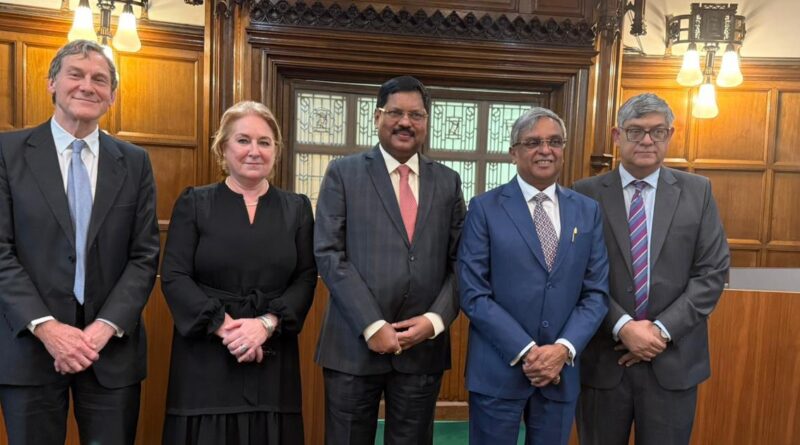Erosion of Trust: Judiciary Faces Accountability Crisis Amid Corruption Claims CJI BR Gavai
(Syed Ali Taher Abedi)
London, June 3, 2025 — Chief Justice of India (CJI) BR Gavai voiced serious concern over ethical challenges arising from post-retirement appointments of judges. “If a judge takes up a government post soon after retirement or contests elections, it raises serious questions about conflict of interest. Such actions may create the perception that judicial decisions were influenced by the anticipation of future political or governmental rewards,” he noted.
“In Situations where a judge has a potential conflict of interest, such as personal involvement in the case or prior professional relationships with the parties involved, it is crucial that they recuse themselves from hearing the case. This ensures that the judge’s impartiality is not in question, preserving the public’s trust in the judiciary.”
Speaking at a roundtable discussion hosted by the Supreme Court of the United Kingdom on maintaining Judicial Legitimacy and Public Confidence in The Digital Age, CJI Gavai cited a recent incident where a Supreme Court judge’s light-hearted comment was inaccurately portrayed by the media. “The statement was made in a light vein to a junior counsel,” he explained, “but was reported as though it reflected judicial arrogance. The misrepresentation—suggesting that ‘our egos are very fragile’—conveyed an entirely incorrect message.
He warned that such misreporting can erode public confidence and create a distorted perception of the judiciary’s tone and intent. In an era where information travels rapidly and perception often becomes reality, the judiciary must tread carefully while embracing transparency, he said.
Justice Gavai acknowledged the Supreme Court of India’s efforts to improve transparency, including the live streaming of Constitution Bench hearings, public asset disclosures by judges, regional language translations of court judgments, and real-time case data through the National Judicial Data Grid.
“Unlike legislature or executive, whose legitimacy stems from the ballot, the judiciary earns its legitimacy by upholding constitutional values with independence, integrity, and impartiality.”
However, he emphasized that while such transparency tools are critical, they must be used responsibly. “Live streaming is a powerful instrument, but like all powerful tools, it must be wielded with care. Misinterpretation or fake news about judicial proceedings can dangerously distort public understanding,” he cautioned.
Underscoring the unique foundation of the judiciary’s authority, CJI Gavai reminded attendees that unlike the executive or legislature, which derive legitimacy through elections, the judiciary draws its legitimacy from adherence to constitutional values: independence, impartiality, and integrity.
To safeguard against this, the CJI and several of his colleagues have taken a public pledge not to accept post-retirement appointments from the government, reinforcing their commitment to judicial independence.
In a candid acknowledgment, Justice Gavai admitted that like any institution, the judiciary has not been immune to instances of misconduct and corruption. “Such failures can undermine public faith in the entire judicial system,” he said. However, he emphasized that the Supreme Court has acted decisively in each such case to restore integrity, sending a strong message that accountability within the judiciary is non-negotiable.
Defending India’s collegium system of judicial appointments, CJI Gavai highlighted its role in insulating the judiciary from executive overreach. He recalled past instances—prior to 1993—when the executive bypassed senior judges to appoint Chief Justices of its choosing, undermining tradition and judicial independence.
In response, landmark Supreme Court judgments in 1993 and 1998 established that the Chief Justice of India, along with the four senior-most judges, would form a collegium responsible for recommending judicial appointments. This system, Gavai stressed, ensures that appointments are made independently of political pressure.
Justice Gavai concluded with a call for the judiciary to be accessible, intelligible, and answerable—but without compromising its independence. “In every democracy, the judiciary must stand as an institution capable of speaking truth to power,” he said.
He was joined at the event by Justice Vikram Nath and senior advocate Gaurav Banerjee, former Additional Solicitor General of India.




